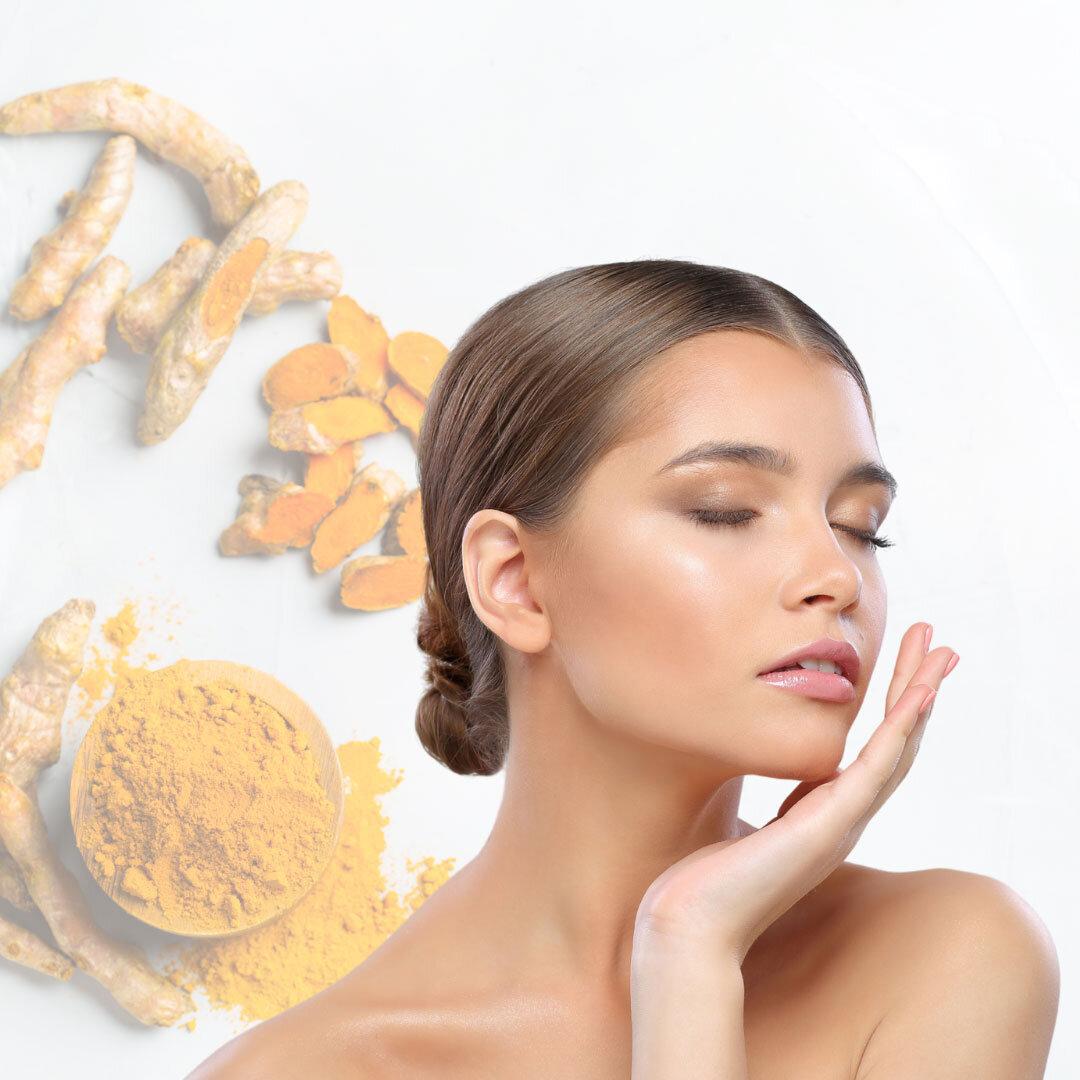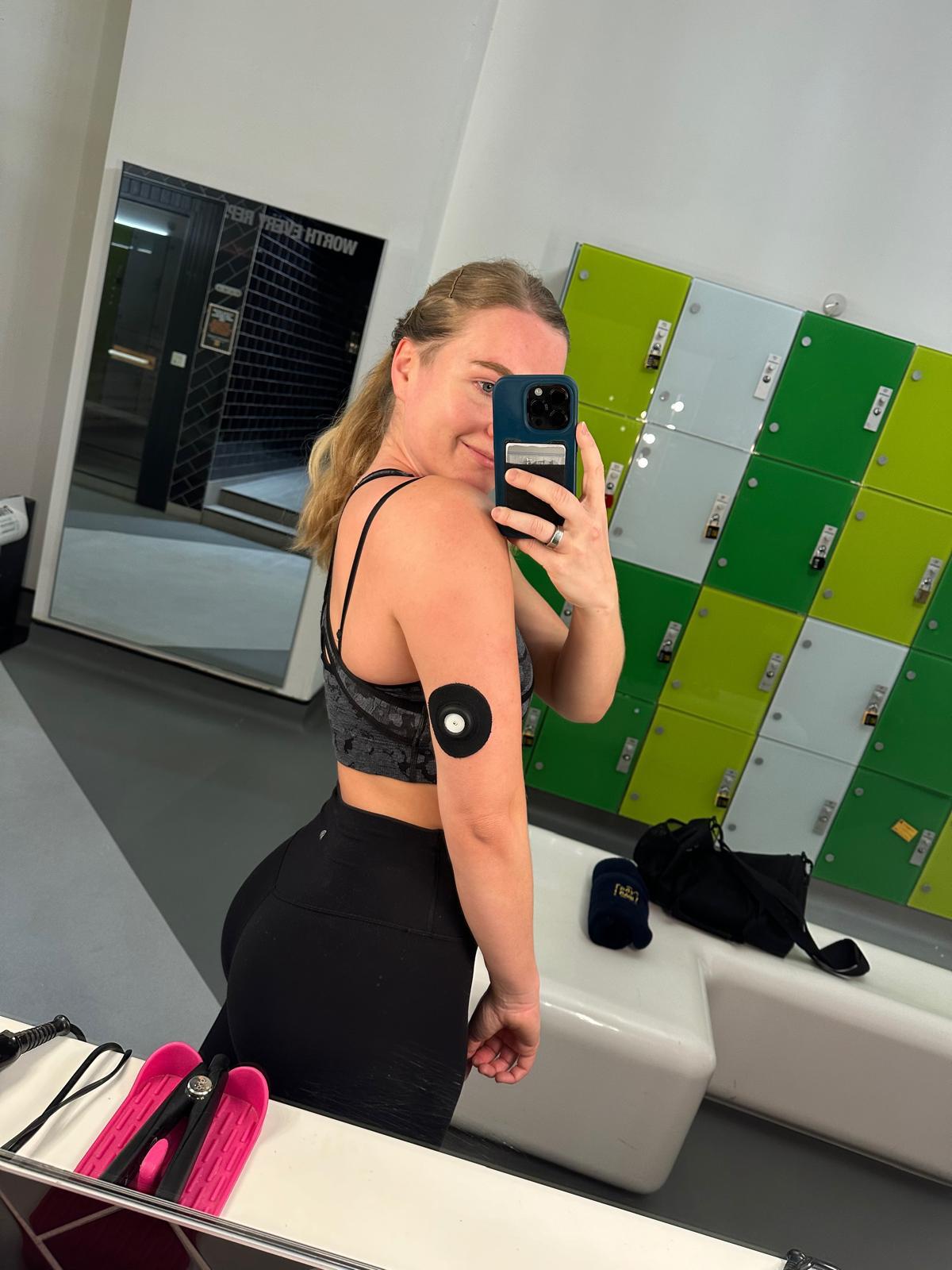
“We are so excited to have Lindsay Powers write our guest blog about the benefits of Curcumin for Skin Health. Lindsay is a Nutritionist and Health Coach, Health Writer and Nutrition Manager at Good Health Naturally. She has wealth of knowledge and experience of helping people with nutritional therapy and health coaching for skin conditions.”
What Are the 3 Main Benefits of Curcumin for Skin Health?
By Lindsay Powers
Nutritional Therapist
Curcumin has a long history of use both as a culinary spice and as a medicinal herb. As a botanical, it has an array of beneficial properties. In more recent years, curcumin has gained popularity as a nutritional supplement, commonly recommended by nutritionists to support many health conditions such as joint, liver, digestive and cardiovascular health. Curcumin for skin health is also an area of much interest due to its antioxidant, anti-inflammatory and anti-microbial properties.
This article will take a deeper look into what makes curcumin such a powerful nutrient and the 3 main benefits for skin health.
What is curcumin, and where does it come from?
Turmeric (Curcuma longa) is a culinary spice commonly used throughout the world and is well known for adding a golden yellow colour to food. Turmeric is a popular addition to curries and Middle Eastern dishes and is used in ‘golden milk’, a traditional Indian drink with its roots in Ayurveda. It is also one of the earliest recorded medicinal plants. The turmeric spice extract has been studied for over 250 years and used for thousands of millennia in Ayurvedic medicine.
Turmeric has many active constituents, but it is the yellow pigment, curcumin, which is considered the most important active ingredient. Curcumin is extracted from the turmeric root and harnessed in natural medicine for its therapeutic benefits. Curcumin is a potent polyphenol that exhibits antioxidant, anti-microbial and anti-inflammatory properties. Curcumin has become one of the most well-researched nutrients, with its powerful properties proving beneficial to many areas of health.
How does curcumin benefit skin health?
1. Anti-inflammatory Properties
Inflammation can be a driving force behind many common skin diseases such as eczema, psoriasis, dermatitis and acne [1]. Inflammation can be responsible for itching, redness, breakouts and the overall worsening of skin issues. Tackling inflammation is a crucial part of any treatment protocol, and we can do this through diet and lifestyle and the use of nutrients such as curcumin.
Studies on curcumin and its anti-inflammatory effects have been ongoing for decades. Research shows that curcumin modulates the inflammatory response by down-regulating cyclooxygenase-2 (COX-2) and inhibiting inflammatory cytokine production [2]. It is these anti-inflammatory properties that have been the subject of much research into skin health.
A recent review of the clinical evidence of curcumin and skin health showed good evidence that it may have therapeutic benefits [3]. The review looked at the evidence from studies using both ingested turmeric/curcumin and topical application. The review examined a total of 234 articles and 18 studies on a range of skin conditions, including acne, alopecia, atopic dermatitis, facial photoaging, oral lichen planus, pruritus, psoriasis, radiodermatitis, and vitiligo. The review concluded that curcumin and its anti-inflammatory benefits offer potential as a therapeutic agent for tackling chronic skin conditions.
2. Anti-Microbial Benefits
As well as helping to reduce inflammation, curcumin exhibits powerful anti-microbial benefits. Another review looked at this potential benefit and the use of curcumin in the treatment of skin infections.
Our skin is host to a balance of micro-organisms that contribute to skin homeostasis. However, this balance can sometimes become disrupted, and the skin can experience bacterial or fungal infections. Evidence shows that curcumin can be a potential and promising option in tackling bacterial and fungal skin diseases whilst overcoming the problem of drug resistance to pathogens [4]. Curcumin also has the potential to inhibit the growth of acne-causing bacteria in acne vulgaris.
3. Natural Antioxidant
The antioxidant benefits of curcumin can play a role in healthy skin ageing. By quenching free radicals, curcumin can help protect the skin from environmental pollutants and UV induced damage. It can help preserve the collagen structure of the skin and protect against premature ageing. It may also help to improve acne-scarring and post-inflammatory hyperpigmentation.
Curcumin and Bioavailability
Many reviews into curcumin and skin health raised the question of absorption, as curcumin may have low oral bioavailability. However, to overcome this issue, it is essential to look for a curcumin supplement that uses Bioperine to improve the absorption rate of the curcumin itself. Super Curcumin, for example, uses the most clinically studied curcumin in the world; a patented form of curcumin with ginger and Bioperine to ensure maximum absorption in the body.
All reviews concluded that curcumin is a safe and effective option for many skin conditions, either in conjunction with conventional medicine or as a stand-alone treatment. As a result, curcumin features in my dietary recommendations to support skin health, and you can read more in my article Top 10 Foods to Include in the Diet to Reduce Breakouts.
If you would like to find out more about the benefits of curcumin for your skin condition and other natural approaches to skin health, please get in touch at hello@powersnutritionclinic.com or find out more at www.powersnutritionclinic.com
References:
Jeremy AHT, Holland DB, Roberts SG, Thomson KF, Cunliffe WJ. Inflammatory events are involved in acne lesion Initiation, J Invest Dermatol. 2003;121:20-27.
Anti-inflammatory properties of curcumin, a major constituent of Curcuma longa: a review of preclinical and clinical research.JS Jurenka - Alternative medicine review, 2009 - 69.164.208.4
https://www.ncbi.nlm.nih.gov/pmc/articles/PMC6770633/


